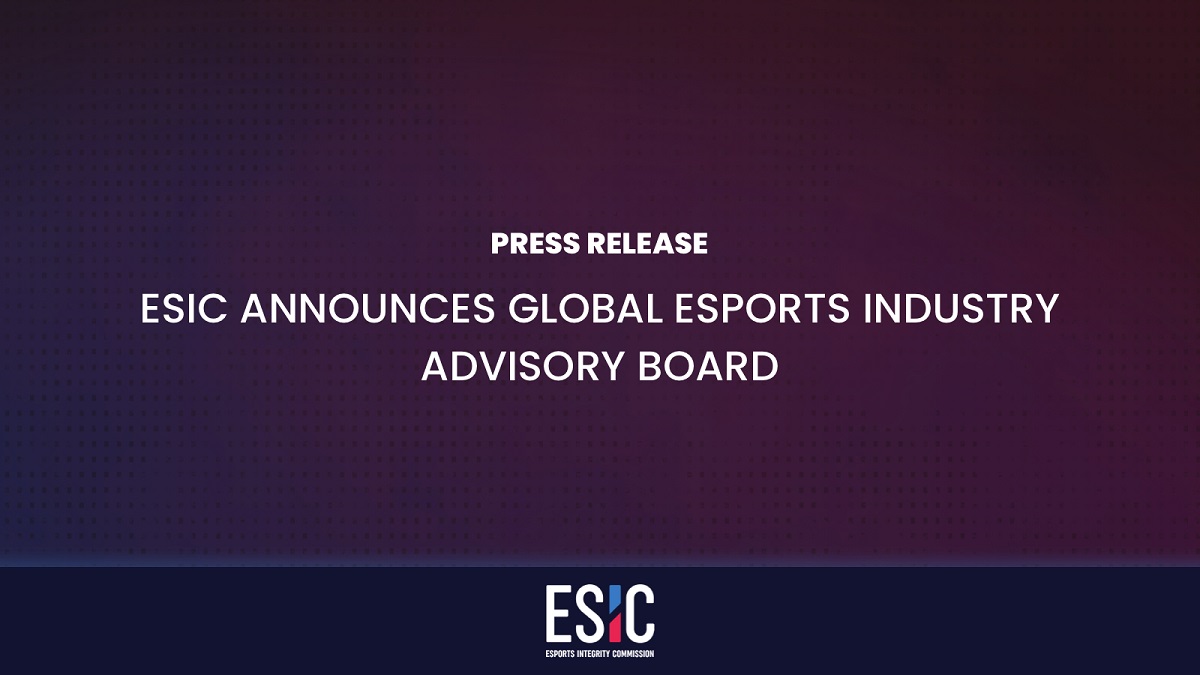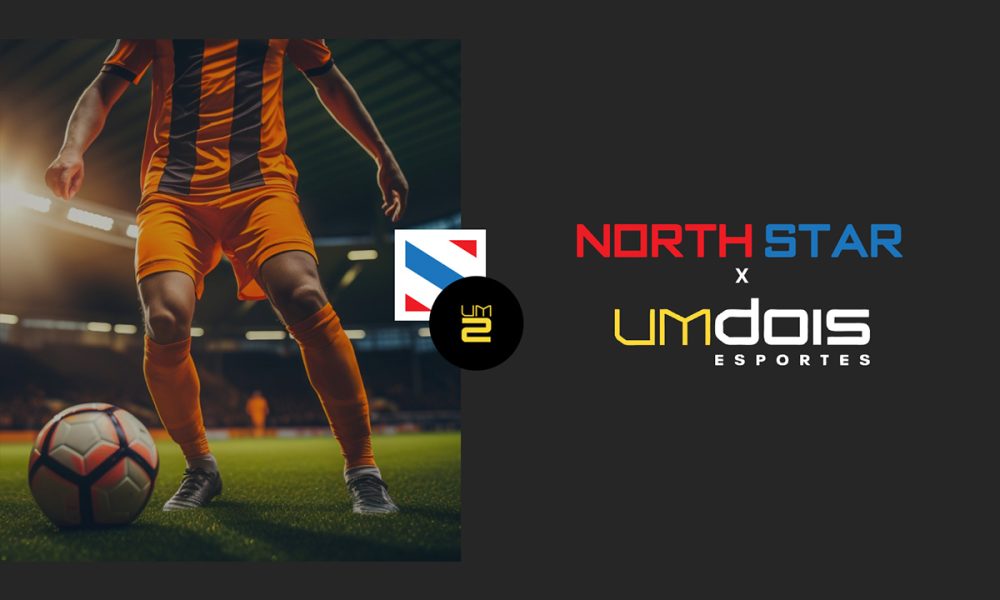

eSports
Galaxy Racer, The First Esports Organization To Get Into Gaming, Sponsors Rogue Jam, A Brand-New Indie Game Jam Competition With US$800K In Prizes
Galaxy Racer (GXR), the largest esports, gaming and lifestyle organisation in the world, has announced its foray into gaming by sponsoring Rogue Jam, a brand-new indie game jam competition. This marks Galaxy Racer as the first esports organization to get into gaming. Galaxy Racer’s branding will be visible throughout Rogue Jam’s marketing campaigns including post-event coverage.
IGN and Rogue Games are partnering to produce Rogue Jam, a brand-new game jam that’s offering exclusive development deals along with US$800,000 in total prizes to competing indie game developers.
Galaxy Racer (GXR) was founded in 2019 and is the largest esports, gaming and lifestyle organizations in the world, with over 100 content creators across Middle East North Africa (MENA) and Southeast Asia (SEA), amassing over 500 million followers and generating over 2.5 billion monthly views.
Founder and CEO of Galaxy Racer, Paul Roy, said: “We’re delighted to support Rogue Jam, an awesome initiative by Rogue Games to uncover the next generation of indie game developers. Galaxy Racer believes in supporting the gaming community and Rogue Games are certainly on point with this competition and are making waves in the industry, including their recent ground-breaking partnership developing games for Netflix.”
Founder and CEO of Rogue Games, Matt Casamassina, said: “We’re thrilled to have Galaxy Racer come onboard as our gold sponsor for Rogue Jam. They are the first esports organization to enter gaming by having skin in the game. With their growing presence in the esports and gaming ecosystem, we are confident their support will have a positive impact to our community.”
Submissions will be accepted between November 29 and December 31 at Rogue Jam’s homepage roguejam.com , with finalists being showcased in a show produced by IGN in early 2022. The grand prize winner will win US$500,000 to develop their game as well as an exclusive Rogue Games publishing deal.
The competition will feature several other categories, including a “WTF” prize for Rogue Jam’s weirdest and wildest game, and an “Eye-Poppingly Beautiful” award for the most attractive game of the competition.
Both categories will offer prizes of US$100,000 along with a publishing deal with Rogue. Smaller prizes of US$50,000 plus a Rogue right of first refusal deal will be offered for “Huge Potential” and “Audience Choice” winners.
Judges for the event will include several well-known figures from across the games industry, including IGN Executive Vice President and Chief Content Officer Peer Schneider and former Nintendo of America President Reggie Fils-Aimé. Complete list of judges below:
- Kimberly Pointer Corbett, Warner Bros. Games Senior Vice President of Digital Publishing
- Reggie Fils-Aimé, former Nintendo of America President, Board Advisor at Rogue Games
- Peer Schneider, IGN Executive Vice President and Chief Content Officer
- Chris Lee, Netflix Head of Game Sourcing and Interactive Games
- Matt Casamassina, Rogue Games CEO
- Chris Archer, Rogue Games Chief Strategy Officer
Rogue Games was founded by Casamassina, who served at IGN until his departure in 2010. Earlier this year, Rogue Games raised US$2.5 million in funding to publish “batsh*t insane” indie games for PC, consoles, and mobile games.
The list of games Rogue currently has in development includes Super Impossible Road, a spiritual sequel to Impossible Road released on Nintendo Switch on December 9, to be followed by a first quarter launch on PS4, PS5, Xbox One, and Xbox Series X|S. Rogue is also publishing Arcanium, an “open-world single-player strategy card adventures,” and Sprawl, a retro FPS. In addition, Rogue Games recently announced that it is partnering with Bloober Team on an unannounced project.
The Rogue Jam submission portal opened November 29, and submissions will be accepted until December 31. Submissions must be playable in order to be considered.
eSports
R&D rethink needed for sportsbooks to harness esports’ power

 Esports betting is still grappling with a perception problem amongst operators. Despite the leaps and bounds in product development made by suppliers – particularly in the last two years – esports hasn’t shaken off the image built in the late 2010s.
Esports betting is still grappling with a perception problem amongst operators. Despite the leaps and bounds in product development made by suppliers – particularly in the last two years – esports hasn’t shaken off the image built in the late 2010s.
Our good friend, Oliver Niner, Head of Sales at PandaScore, has been kind to share the below article with us.
There’s scepticism around esports betting’s value, how well it can actually perform and what’s needed to make it appeal to bettors. A big part of that comes down to perception, which shapes the research and development (R&D) choices made by each operator.
Self-fulfilling prophecy?
Operators who have put the research and development (R&D) resources into esports are seeing excellent growth, while others are still treating it like part of a long tail. The lack of a uniform approach to esports often translates into hesitancy to be bullish and invest in esports.
Whereas in the United States, post-PASPA sports betting has exploded and operators are seeking to capture as much territory and market share as possible because in most cases, you switch the lights on and the money comes in. It’s, of course, good business sense to take opportunities like this – you can apply the same templates used elsewhere on an incredibly lucrative market.
This kind of approach has been attempted for esports and hasn’t found the same success. Granted, the legislation for betting on esports has been somewhat slower than that of sports betting and iGaming.
However, bullish operators have acknowledged the fact that esports hasn’t found the same success in regulated states and asked what can be done differently, while for others, esports has been thrown into the too-hard basket or relegated to the bargain bucket.
For the latter, the fate of the esports vertical becomes a self-fulfilling prophecy – especially if an operator already using a budget esports product that throttles its very growth.
It takes two to tango
When esports is discussed in broader betting circles, you’ll often hear different versions of the same talking point: the problem with esports is no one is doing it well, it doesn’t innovate.
This argument is a case of the pot calling the kettle black. Esports is a driver of innovation, and it is sportsbook R&D that is holding it back.
Multiple suppliers on the market are investing significant resources into R&D, and bullish operators are leveraging these product innovations to acquire new customers and create engagements made for the internet age.
There are understandable reasons why sports betting doesn’t innovate. It’s largely because operators focus on acquisition, entering new territories and spending money on data rights. But the actual R&D on sportsbook products is left lacking, with ever-increasing cost-per-acquisition (CPA) numbers a clear symptom of this.
It means that if an operator does decide to use or acquire an esports specialist supplier but does little to cater its product and attempts to just lay the sports betting template over the top, of course performance will be throttled.
It’s like putting a Ferrari engine in a Prius – no offence to Toyota or Prius owners.
The same problem exists on the platform supplier front. Platforms are understandably focused on compliance and getting customers live, not necessarily improving models or their products.
Even the idea that if you just acquire an innovative company the problem is solved or you have found the solution, doesn’t hold water. In many cases, the company is acquired and plenty of noise is made about it, but there’s little organisational investment in R&D afterwards.
It’s not just in esports
These problems extend to customer acquisition and marketing for most emerging markets, not just esports. There’s a rush to use the same old playbook in newer sectors because it’s easy.
The fantasy vs. house sector in the US is already experiencing an acquisition arms race. As analyst Dustin Gouker points out, deposit match bonuses for new users on fantasy vs house products have jumped from $100 to as high as $500 in some places.
This is the same race that played out in sports betting and despite the costs, there’s little effort from most operators to try something different. There’s less work when you just put the same acquisition template on an emerging sector and call it a day. This seems to be an accepted practice in the industry, for better or for worse.
Esports betting success requires ongoing dialogue
Rather than attempting to wedge esports into hegemonic sportsbook approaches, sportsbooks need to take a completely unique approach.
The fact is the betting sector has barely scratched the surface – communities of esports fans are still dormant. Canadian operator Rivalry has built a successful, esports-first business by embracing the ever-changing internet culture that esports inhabits. French esports organisation Karmine Corp recently sold out a 30,000-person stadium for an event with no prize money up for grabs.
Innovative products developed on the supplier side like microbetting and betbuilders are only half of the equation.
Maximising esports revenues requires institutional investment, ongoing R&D and collaboration between suppliers and operators to create products and experiences. This includes having staff on the operator side that can drive and push the product further, and crucially, rethinking current sportsbook strategies and practices.
Building experiences for betting’s greatest emerging market – one that caters to your future core audience – takes investment, innovation and a willingness to experiment. If the industry wants to make the most of the Millennial and Gen Z audience that will become its primary customers, investment into R&D and close collaboration between suppliers and operators is needed. Many hands makes light work.
eSports
ESIC Announces Establishment of Global Esports Industry Advisory Board

The Esports Integrity Commission (ESIC) is pleased to announce the establishment of its Global Esports Industry Advisory Board, designed to enhance integrity and ethical practices across the esports landscape. The Advisory Board will serve a pivotal role by providing expert advice to ESIC’s Chief Executive Officer on a range of critical industry issues.
The primary function of the Advisory Board is to create a robust framework for integrity and fairness, setting a global benchmark for ethical conduct and fair competition in esports. The board will offer strategic insights, help shape policies governing fair play, liaise with key industry stakeholders, and act as ambassadors advocating for ethical practices.
ESIC has appointed two highly esteemed members to inaugurate this board:
- David Neichel, Senior Vice President of Public & International Affairs at ESL FACEIT Group (EFG), joins the Advisory Board with over fifteen years of experience in the video games industry, including significant roles at Activision-Blizzard and Electronic Arts. David’s profound impact on international and public affairs initiatives makes him an invaluable addition to the board.
- Robbie Douek, CEO of BLAST, also joins the Advisory Board, bringing a wealth of experience from his roles at Google and Disney, along with his leadership through major acquisitions. Robbie is celebrated for his strategic leadership and his instrumental role in elevating esports to a significant global entertainment platform.
The formation of the Advisory Board is an engagement that underscores the commitment of its members to upholding and promoting the highest standards of integrity within the esports industry. The board will meet as required to address strategic challenges and ensure that ESIC’s initiatives effectively meet current and future industry needs.
“Both David and Robbie bring a remarkable depth of knowledge and a passion for advancing the integrity of esports,” said Stephen Hanna, CEO of ESIC. “Their expertise will be crucial as we navigate the evolving landscape of esports and strive to maintain the integrity that our community expects and deserves.”
Robbie Douek, CEO at BLAST, said: “I’m honoured to be given the opportunity to support the Global Esports Industry Advisory Board and ESIC in their ambition to create the best and fairest environment possible for players, teams and fans.”
David Neichel, Senior Vice President of Public & International Affairs at ESL FACEIT Group (EFG) also commented: “It is a true honour to join the Global Esports Industry Advisory Board and support ESIC’s successful journey. Fairplay and integrity are at the core of esports. We owe it to the players and to the fans and for a better endemic industry governance”
The post ESIC Announces Establishment of Global Esports Industry Advisory Board appeared first on European Gaming Industry News.
eSports
North Star Network Acquires Um Dois Esportes

North Star Network has acquired Um Dois Esportes, a sports coverage and analysis site created from the merger of Gazeta Do Povo and Tribuna do Paraná in 2020.
Julien Josset, co-founder of North Star Network, said: “Thank you to the team at GRPCOM for their faith in us to take the brand forward. Um Dois Esportes is an established and renowned site in Paraná State, and we’re excited about the challenge of developing this asset.
“We’re happy to maintain the collaboration with the existing editorial team, and look forward to working with them, bringing our unique NSN approach, to take UDE forward.”
NSN’s signing of Um Dois Esportes is the media house’s fourth acquisition of 2024, following the recent deals to purchase UK-based SportsMole and MrFixitsTips, as well as Chilean site AlAireLibre, which was announced in March.
The latest addition to the North Star media portfolio joins existing assets including Top Mercato, Afrik-Foot, and Vringe. The Paris-based company already oversees a significant Brazilian operation, delivering over 6 million sessions per month, from the likes of Trivela, Premier League Brasil and Lakers Brasil.
NSN will retain Curitiba-based journalists from the Um Dois Esportes legacy team to maintain the asset’s unique tone and popular coverage of the Paraná sports scene across site and social.
Rafael Mello, Director of GRPCOM, said: “We were surprised by the interest, and initially had no intention of selling Um Dois, but as the conversations evolved, we realised this was a serious group with good intentions. We were very happy to see our project being valued by a large international group and going global, demonstrating the quality of the content we produced.
“We’re also proud that North Star inherited our journalists, who are truly responsible for the success of the product we offer readers every day.”
-

 gaming2 years ago
gaming2 years agoODIN by 4Players: Immersive, state-of-the-art in-game audio launches into the next generation of gaming
-
EEG iGaming Directory7 years ago
iSoftBet continues to grow with new release Forest Mania
-
News6 years ago
Softbroke collaborates with Asia Live Tech for the expansion of the service line in the igaming market
-
News5 years ago
Super Bowl LIII: NFL Fans Can Bet on the #1 Sportsbook Review Site Betting-Super-Bowl.com, Providing Free Unbiased and Trusted News, Picks and Predictions
-
iGaming Industry6 years ago
Rick Meitzler appointed to the Indian Gaming Magazine Advisory Board for 2018
-
News5 years ago
REVEALED: Top eSports players set to earn $3.2 million in 2019
-
iGaming Industry6 years ago
French Senator raises Loot Boxes to France’s Gambling Regulator
-
News6 years ago
Exclusive Interview with Miklos Handa (Founder of the email marketing solutions, “MailMike.net”), speaker at Vienna International Gaming Expo 2018










